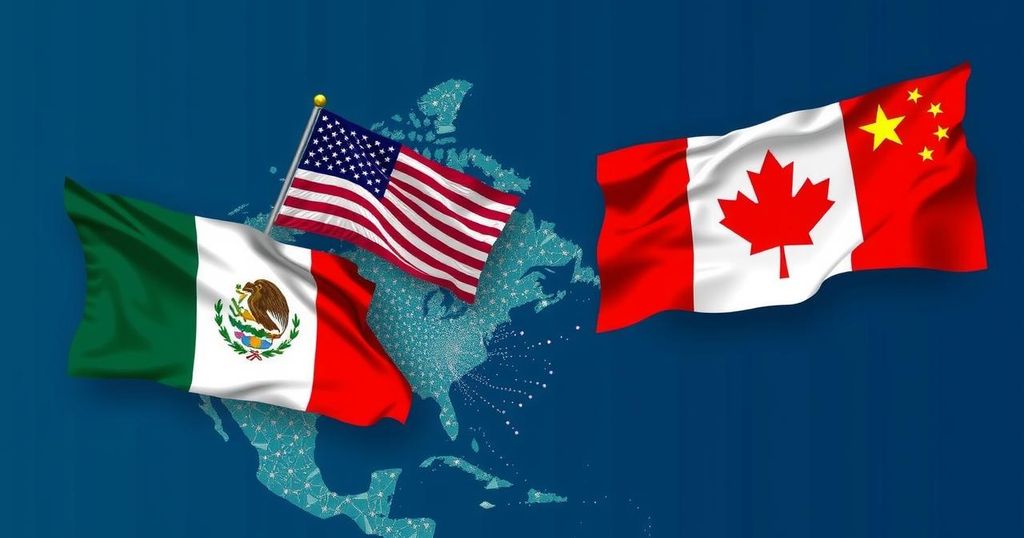Trump Announces Major Tariff Increases on Imports Starting Day One of Presidency

President-elect Donald Trump has pledged to impose substantial tariffs on goods imported from Mexico, Canada, and China starting on January 20th. He cites both illegal immigration and the flow of drugs, especially Fentanyl, as justifications. This move continues his administration’s previous focus on tariffs as a strategy to bolster domestic manufacturing, though economic experts caution about the potential inflationary impacts on American consumers.
On January 20th, President-elect Donald Trump announced his intention to impose significant tariffs on goods imported from Mexico, Canada, and China, commencing on his first day in office. He stated that these tariffs, amounting to 25% on products from Mexico and Canada and an additional 10% on Chinese goods, would serve as a punitive measure against illegal immigration and the influx of drugs, particularly Fentanyl, into the United States. Trump asserted that this tax would remain until the flow of drugs and illegal immigration ceased, emphasizing that neighboring countries could rectify this persistent issue. Furthermore, he cited prior discussions with China regarding drug trafficking, asserting that promises made by Chinese officials to address drug dealers were not fulfilled. The announcement aligns with Trump’s historic use of tariffs to bolster domestic manufacturing and generate revenue to counterbalance tax cuts he has proposed. However, the economic implications of such actions could lead to increased costs for American consumers, as tariffs often translate to inflationary pressure. Notably, Trump has indicated he might pursue tariffs as high as 60% on Chinese goods in a potential second term, following a similar strategy utilized during his previous administration.
The use of tariffs has been a cornerstone of Donald Trump’s economic strategy since his initial campaign and presidency. He has consistently framed tariffs as essential tools to protect American manufacturing, reduce trade deficits, and penalize foreign nations for practices he deems unfair. This strategy has historically led to trade tensions, as targeted nations often retaliate with their tariffs, sparking trade wars that can disrupt markets and impact domestic consumers. Economists remain divided on the effects of tariffs, with many warning of inflationary consequences and increased costs to consumers. Trump’s new proposals signal an aggressive approach to international trade relationships as he seeks to assert U.S. economic independence and security.
In summary, President-elect Trump has reaffirmed his commitment to raise tariffs on imports from Mexico, Canada, and China, citing illegal immigration and drug trafficking as primary motivations. His proposals, while aimed at strengthening domestic manufacturing and self-sufficiency, raise concerns about potential inflation and retaliatory trade measures that could hinder economic stability. As he prepares to implement these tariffs, the implications for American consumers and international relations remain a significant consideration.
Original Source: www.cnn.com








